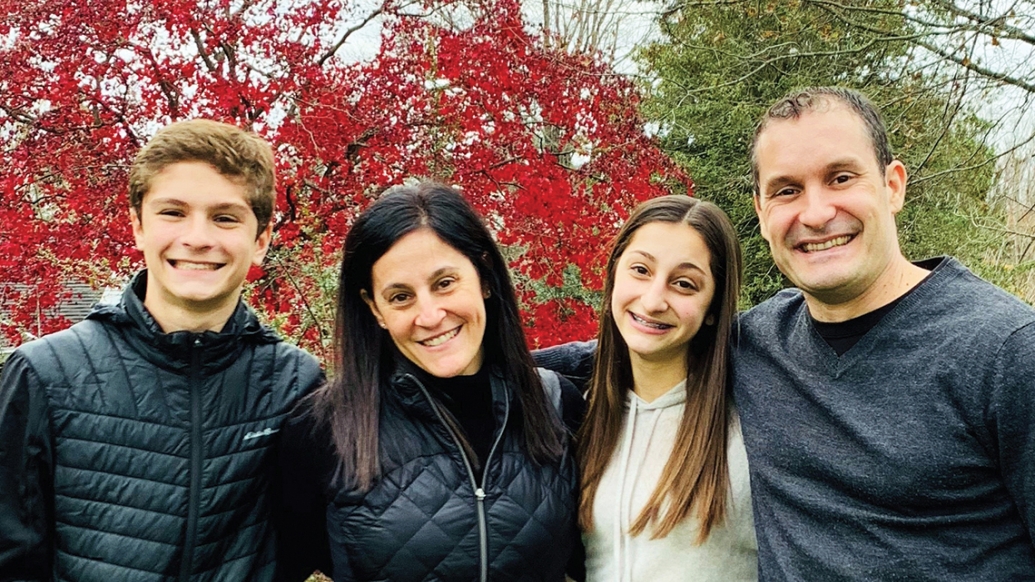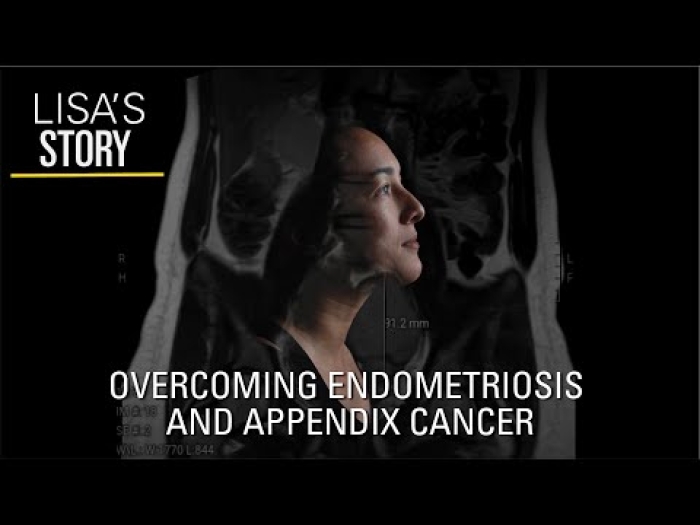
A balance beam demands courage, confidence, and determination. It demands the skill of an athlete unwilling to shy away from its challenge, someone with patience and poise. Deborah Berman (M.D. 1999, Residency 2003, Fellowship 2010), an associate professor of obstetrics and gynecology in the Division of Maternal Fetal Medicine, delivered that strength as an undergraduate on the U-M gymnastics team — and continues to do so as a member of the U-M Fetal Diagnosis and Treatment Center (FDTC), the only one of its kind in Michigan.
"A four-inch balance beam," says Berman, "is a wonderful place to find out about struggling and facing disappointment, dusting oneself off, and trying again. And again. And again."
Berman was raised on maize and blue, born into a family steeped in Michigan tradition. Her parents and brother are alumni, as is her husband, Rich Dopp (M.D. 2001, Residency 2005, Fellowship 2007), also a former U-M gymnast and now assistant professor in the Medical School's Department of Psychiatry.
For Berman, attending Michigan was not just a rite of passage, but an unparalleled opportunity. In gymnastics and as an undergraduate, she learned how teamwork and dedication can mold a person; at the Medical School, she found inclusivity and diversity, and, while completing her obstetrics and gynecology rotation, saw firsthand the importance of standing up for others.
"Every human deserves an advocate. But women — and particularly women during their reproductive journeys — most certainly deserve advocates and voices of support. Many pregnancies are profoundly complicated, and those women and families deserve providers who walk that walk with them, hold their hands, and have the medical knowledge and skills to help them through whatever they may need. And that is who and what I wanted to be."
At the U-M FDTC, Berman works in high-risk obstetrics, prenatal diagnosis, and fetal surgery and therapy, where she has the "privilege of working with the FDTC team to perform in-utero procedures … to improve outcomes or to actually save lives."
She and Dopp, the "adorable gymnast" she met the first day of freshman year, both became advocates in their respective fields, taking what they learned at U-M to heart. Dopp champions the children and adolescents he works with, and "dreams of destigmatizing mental health." As a maternal fetal medicine specialist, Berman feels privileged to serve the woman and her fetus — "two patients at one time" — and is humbled by the fact that that's something "not done in other facets of medicine."
"A four-inch balance beam is a wonderful
place to find out about struggling and
facing disappointment, dusting oneself
off, and trying again."
On her floor at the Von Voigtlander Women's Hospital, she is constantly astounded by the "nurses, anesthesiologists, operating room techs, residents, fellows, and medical students all working together for a common goal." It evokes a memory of attending the NCAA championships as a senior at U-M. Throughout all the events, she and her fellow gymnasts held hands, cheered each other on, and celebrated everyone's contributions to the team. At home and at work, Berman is grateful to be surrounded by people as committed to improving the lives of others as she is.
"I learned that not every day brings success, but every new day brings the opportunity to plug along and do my best — in my work for my patients, my students, my colleagues. I learned that there is a right way to do what should be done, and that I can and should follow that path. Every one of these lessons from my early years are somewhere deep in my soul, there when I have needed them most in my practice of medicine, in my life."
Deborah Berman, pictured above, second from left, with her two children and husband, Rich Dopp.





